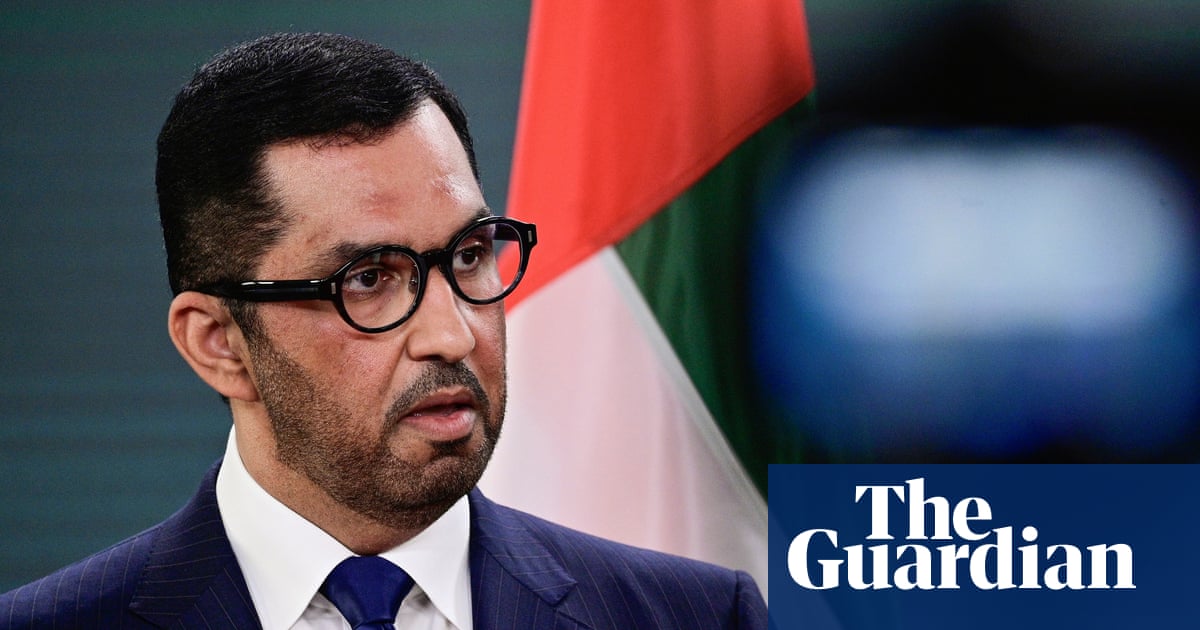
On Sunday, loud cheers from Sharm el-Sheikh greeted the announcement of a new initiative – the global loss and damage fund – to right historical wrongs by compensating climate-hit developing countries. This breakthrough brought back memories of another, the £100bn a year agreed at the 2009 Copenhagen climate summit to help poor countries mitigate the effects of the climate crisis.
That money has never fully materialised. If our 13 years’ experience of the £100bn fund that never was is anything to go by, eulogies of praise will soon turn into allegations of betrayal. The president of next year’s Cop28 will have to answer for yet another fund without funders. Far from the loss and damage fund narrowing the credibility gap on climate action, it is likely to bridge nothing if money fails to flow from rich to poor.
The last decade has been a history of promises made and broken. Before Covid, the cost of financing the sustainable development goals (SDGs) was $2.5tn a year. Now, post-Covid, and with the price of fighting floods, firestorms and droughts – and the debt burden of low-income countries – dramatically escalating, it is $4tn annually. Set against an official development assistance (ODA) budget of only $179bn a year and $130bn on offer mainly in multilateral loans, the SDGs represent yet another unanimous but unfunded pledge of the international community. To make matters worse, the British development aid budget has now been cut from 0.7% of our national income to 0.5% for years ahead, and already our overall contribution to meeting all our climate and development targets is down from the promised £16bn to just £11.5bn.
But there is a way forward if we are to meet our goals. About $2tn (£1.75tn) will be needed each year by 2030 to help developing countries cut their greenhouse gas emissions. This could be paid for, if necessary, by raising global taxes like the airline levies pioneered by France and the UK. As the pathbreaking Bridgetown declaration, inspired by the prime minister of Barbados, Mia Mottley, recommends, $100bn of special drawing rights (the international money issued by the IMF) should immediately be redistributed from rich to poor countries, with half going to finance green projects. President Macron’s June summit on climate finance should cancel the unpayable debt of low-income countries in return for those countries taking action on the climate. For those who can pay, debt repayments should be varied in the event of climate disasters.
Public funds will never, as Bridgetown recognises, be enough, so it is vital that every pound, dollar and euro of aid is used to generate other sources of support. Mobilising private finance was the centrepiece of a seminal 2015 report from the IMF and the development banks. Governments, it proposed, should put in place the right incentives to encourage private finance to invest in climate breakdown and development. Indeed, the SDGs’ funding needs could be met if we mobilised just 1% each year of the $400tn financial assets held by banks, institutional investors and fund managers.
Yet despite billions in pledges, good intentions and a flood of press releases publicising socially responsible environment, social and government projects, too little private investment is yet in play, leading to allegations of greenwashing. Pioneered by Ronald Cohen, impact investing, where corporate outlays are measured not only in risk and reward but in socially beneficial results, has the potential to fund clean energy, renewables and mitigation and adaptation. But this will almost certainly require legislation for impact-weighted accounting, so that alongside profit and loss, companies itemise in monetary terms the real-time social and environmental benefits of their activities.
But all this will take time, and climate finance is needed urgently. It should be kickstarted immediately by transforming the World Bank into a global public goods bank. The international development association is the arm of the bank dedicated to the lowest-income countries. By borrowing on the strength of repaid loans, it can unlock more than $100bn in additional capital. Merging this with the bank’s facility that aids middle-income countries could then quadruple the bank’s capital base.
Even more funds could be generated through the innovative use of guarantees offered to the regional development banks by the richest countries, and the Asian Development Bank is already planning to fund climate projects securing guarantees from European governments. If deployed across all multilateral banks, an initial $10bn in grants, some raised from global philanthropists, matched with $60bn of guarantees, could be used to raise a total of $270bn to support the transition to net zero, and, overall, our regional and international institutions could soon be investing not just billions but a trillion dollars each year.
And funds could be guaranteed on a sustained basis if the world’s richest countries agreed to share the burden fairly, based on their capacity to pay. While this is a proven model, used in 1966 in an attempt to eliminate smallpox, today only $7bn of UN financing (for peacekeeping) and just $1bn of health financing (to pay 25% of the current World Health Organization budget) is currently raised through a burden-sharing formula. All the rest comes through passing around a begging bowl.
A world addressing an existential challenge should not have to rely on charity. An action plan for Cop28 that requires donors to contribute to climate finance based on their capacity to pay – and, in the case of loss and damage, based on historic liability for greenhouse gas emissions – should be the starting point for the next round of climate finance. Adequately funding our global goals for the first time would be something to really cheer about. We have the means and the knowhow. What we now need is the political will.
Gordon Brown is the WHO ambassador for global health financing, and was UK prime minister from 2007 to 2010












